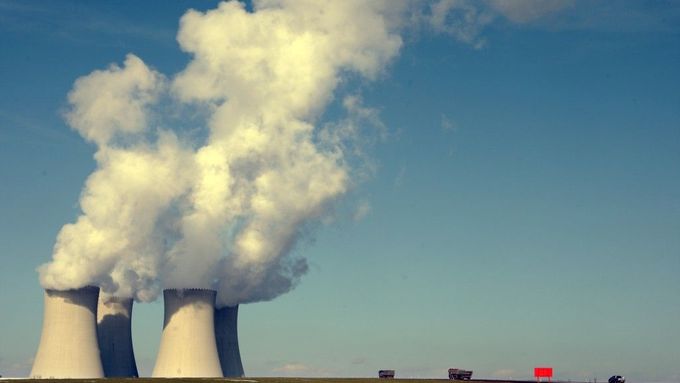Prague - The Czech Republic may become the only EU member state with a complex nuclear energy program including uranium mining, production of nuclear fuel, and expansion of the existing nuclear power capacity
This is the conclusion of a report released by the Industry and Trade Ministry and approved by the government.
The report states that in the next 10 to 15 years, the Czech Republic will have to close (for different reasons) power plants producing in total 4,000 megawatts, which equals the output of two Temelín nuclear plants (Temelín is the larger of the Czech Republic's two nuclear plants).
Read more: CEZ: Japan-style nuclear crisis impossible in Czech Rep
Read more: Austrians fear earthquake in Temelín
The ministry wants to offset this drop with modern brown coal sources and new nuclear reactors. Czech nuclear reactors will produce more than half of the electricity produced in the Czech Republic, plans the report Aktuálne.cz has at its disposal.
In order to reach this goal, the lifespan of the existing reactor blocks needs to be extended, and the construction of two new reactors in Temelín and one in Dukovany should not be further delayed.
In addition, the ministry plans to build the Czech Republic's third nuclear power plant - in Blahutovice, the Ostrava region, considered since the 1980s as a possible site for a new plant.
The ministry thus wants to "conduct a preliminary assessment of the quality of the Blahutovice locality in terms of its capacity for a possible placement of a new nuclear source," said the report.
"Highly strategic resource"
The Czech Republic is already the last European country engaged in uranium mining - in Rožnov, the Vysočina region. According to Industry Minister Martin Kocourek, the state will have to open a new uranium mine in the future if it wants to sustain its resource independence, as the deposits in Rožnov are getting scarce.
The report explains that with the planned growing role of the nuclear energy in the Czech Republic in the following decades, so will grow the importance of Czech uranium deposits, deemed "a highly strategic resource" in the report.
Kocourek also stresses the importance of investments into research and development in order to make the mining as environment-friendly as possible.
Finally, the ministry is also giving serious thoughts to building a factory that produces fuel for nuclear reactors. The government could contract the firms currently competing for the contract for the construction of additional reactor blocks in Temelín and Dukovany.
The report explains that a factory producing nuclear fuel would enhance the energy security of the Czech Republic.
Czech environmental organizations Calla and Hnutí Duha (Rainbow movement) consider the ministry's report a return to the energy policy of the 1970s. The groups criticize above all the decision to preserve the fossil and nuclear energy. Also, they argue the Czech Republic should try to reach a bigger economic output using less energy, while the ministry plans to go the opposite direction.
The ongoing debate about the nuclear energy has intensified since the Fukushima disaster earlier this year.
